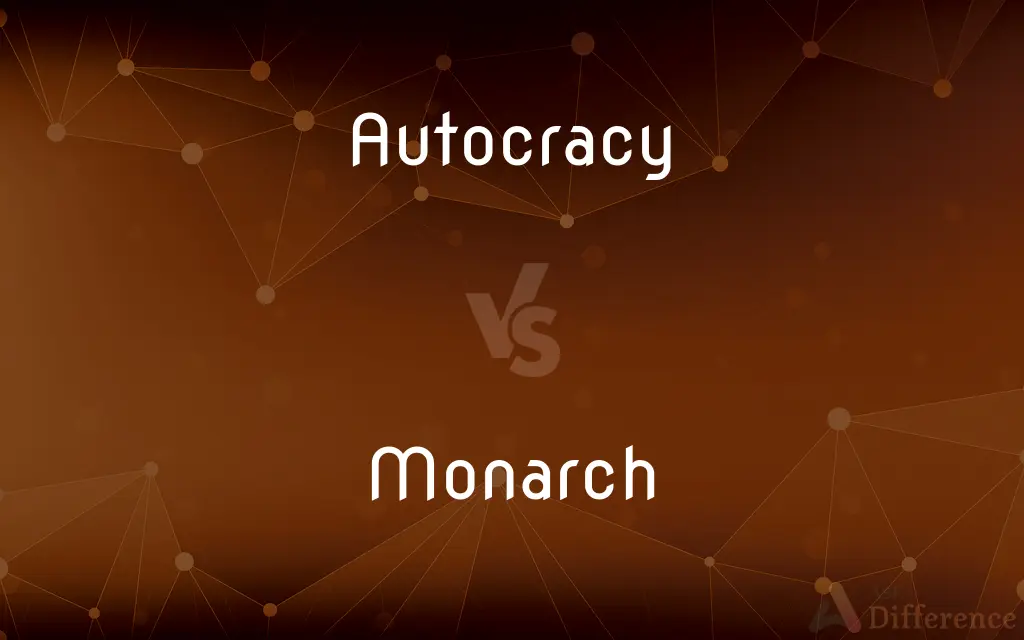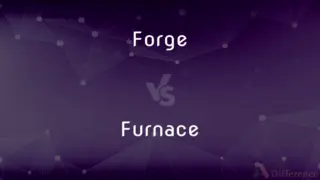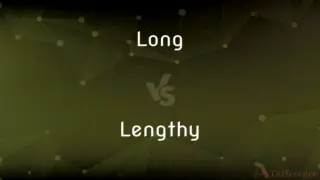Autocracy vs. Monarch — What's the Difference?
By Tayyaba Rehman & Maham Liaqat — Updated on April 8, 2024
Autocracy emphasizes absolute power held by one, often disregarding individual freedoms, whereas monarchy typically involves a single ruler but may include constitutional limits.

Difference Between Autocracy and Monarch
Table of Contents
ADVERTISEMENT
Key Differences
Autocracy centers on the concentration of power in a single individual's hands, who typically makes decisions without the need for consent from the governed or representatives. This form of governance often leads to a lack of checks and balances, making the autocrat's decisions final and absolute. Whereas, a monarchy is a form of government where a monarch, such as a king or queen, acts as the state's head. While historically monarchies were absolute, modern times have seen a shift towards constitutional monarchies, where the monarch's powers are limited by a constitution or legislative body.
In an autocracy, the leader's authority can come from various sources, including military power, political manoeuvring, or even inheritance, much like in a traditional monarchy. However, the key distinction lies in how power is exercised and justified. Whereas, in a monarchy, the ruler's authority is often justified by tradition, divine right, or hereditary succession, linking the monarch's legitimacy to the historical and cultural heritage of the nation.
One significant difference between these two forms of governance is the potential for systemic checks and balances. Autocracies often lack formal mechanisms for limiting the ruler's power, leading to potential abuses of power and suppression of dissent. On the other hand, many modern monarchies have evolved to incorporate democratic principles, including legal and institutional checks that can limit the monarch's direct political influence.
Another distinction lies in the public perception and cultural significance of the leadership. In autocracies, the leader's image is often carefully managed to maintain power, with a focus on showcasing strength and decisiveness. Whereas, monarchs may play symbolic or ceremonial roles, embodying the nation's history and unity, even in constitutional monarchies where their political power is restricted.
Despite these differences, both autocracies and monarchies share the characteristic of concentrating power within a narrow leadership structure. The key variations stem from the source of legitimacy, the scope of power, and the presence or absence of checks and balances within the system.
ADVERTISEMENT
Comparison Chart
Definition
A system where power is held by a single individual without checks.
A form of government with a monarch at the head.
Source of Power
Often self-acquired through force or inheritance.
Traditionally inherited, justified by tradition or divine right.
Checks and Balances
Typically lacks formal mechanisms for checks.
May include constitutional limits and democratic elements.
Role of Leader
Absolute decision-maker.
Can be symbolic or active in governance, depending on the constitution.
Public Perception
Focuses on strength and decisiveness.
Embodies historical and cultural significance.
Compare with Definitions
Autocracy
Leadership is often justified by personal charisma, success in conquest, or the right of conquest.
The autocrat claimed his right to rule was based on his unmatched leadership qualities.
Monarch
Historically, monarchies were common, but today, many have transitioned to constitutional forms.
The monarchy evolved over centuries from absolute rule to a ceremonial position within a democratic framework.
Autocracy
Characterized by the absence of democratic processes or checks on authority.
In an autocracy, public protests against government policies were quickly suppressed.
Monarch
A government led by a king, queen, or emperor, where the position is usually inherited.
The monarchy was a revered institution, with the queen serving as the nation's figurehead.
Autocracy
Power can be maintained through coercion, surveillance, and the suppression of political opposition.
The autocrat's regime relied heavily on the secret police to maintain order.
Monarch
Can be either absolute, where the monarch has complete control, or constitutional, where their power is limited.
The constitutional monarchy balanced the tradition of royal leadership with democratic governance.
Autocracy
A government system where unlimited power is concentrated in the hands of a single ruler.
The autocrat decreed new laws without consultation or approval from any governing body.
Monarch
The monarch's role may vary from ceremonial duties to significant influence in national affairs.
In this monarchy, the king had a pivotal role in shaping foreign policy.
Autocracy
Succession can be unpredictable, sometimes leading to power struggles.
The autocrat's death triggered a fierce battle among his generals for control.
Monarch
Monarchs often symbolize continuity and national identity.
The queen's jubilee celebrated the monarchy's role in the nation's history and culture.
Autocracy
Autocracy is a system of government in which supreme power over a state is concentrated in the hands of one person, whose decisions are subject to neither external legal restraints nor regularized mechanisms of popular control (except perhaps for the implicit threat of coup d'état or other forms of rebellion).In earlier times, the term autocrat was coined as a favorable description of a ruler, having some connection to the concept of "lack of conflicts of interests" as well as an indication of grandeur and power. This use of the term continued into modern times, as the Russian Emperor was styled "Autocrat of all the Russias" as late as the early 20th century.
Monarch
A monarch is a head of state for life or until abdication, and therefore the head of state of a monarchy. A monarch may exercise the highest authority and power in the state, or others may wield that power on behalf of the monarch.
Autocracy
Government by a single person having unlimited power; despotism.
Monarch
A sole and absolute ruler.
Autocracy
A country or state that is governed by a single person with unlimited power.
Monarch
A sovereign, such as a king or empress, often with constitutionally limited authority
A constitutional monarch.
Autocracy
(uncountable) A form of government in which unlimited power is held by a single individual.
Monarch
One that commands or rules
"I am monarch of all I survey" (William Cowper).
Autocracy
(countable) An instance of this government.
Monarch
One that surpasses others in power or preeminence
"Mont Blanc is the monarch of the mountains" (Byron).
Autocracy
Independent or self-derived power; absolute or controlling authority; supremacy.
The divine will moves, not by the external impulse or inclination of objects, but determines itself by an absolute autocracy.
Monarch
A monarch butterfly.
Autocracy
Supreme, uncontrolled, unlimited authority, or right of governing in a single person, as of an autocrat.
Monarch
The ruler of an absolute monarchy or the head of state of a constitutional monarchy.
Autocracy
Political independence or absolute sovereignty (of a state); autonomy.
Monarch
The monarch butterfly, Danaus plexippus, and others of genus Danaus, found primarily in North America, so called because of the designs on its wings.
Autocracy
The action of the vital principle, or of the instinctive powers, toward the preservation of the individual; also, the vital principle.
Monarch
(Aboriginal English) A police officer.
Autocracy
A political system governed by a single individual
Monarch
(often capitalised) A stag which has sixteen or more points or tines on its antlers.
Autocracy
A political theory favoring unlimited authority by a single individual
Monarch
The chief or best thing of its kind.
Monarch
Any bird of the family Monarchidae.
Monarch
A sole or supreme ruler; a sovereign; the highest ruler; an emperor, king, queen, prince, or chief.
He who reignsMonarch in heaven, . . . upheld by old repute.
Monarch
One superior to all others of the same kind; as, an oak is called the monarch of the forest.
Monarch
A patron deity or presiding genius.
Come, thou, monarch of the vine,Plumpy Bacchus.
Monarch
A very large red and black butterfly (Danais Plexippus); - called also milkweed butterfly and monarch butterfly.
Monarch
Superior to others; preëminent; supreme; ruling.
Monarch
A nation's ruler or head of state usually by hereditary right
Monarch
Large migratory American butterfly having deep orange wings with black and white markings; the larvae feed on milkweed
Common Curiosities
How do autocracies and monarchies differ in their source of power?
Autocracies can derive power from various sources, including force or inheritance, while monarchies traditionally inherit power through familial lines.
Can monarchies have democratic elements?
Yes, many modern monarchies are constitutional, incorporating democratic elements and limiting the monarch's power through a constitution or legislative body.
What is an autocracy?
An autocracy is a government system where all power resides in the hands of a single individual, without the need for checks or balances.
What roles do monarchs play in modern governments?
In modern constitutional monarchies, monarchs often have ceremonial roles, with limited direct influence on day-to-day governance.
Are there checks and balances in autocracies?
Autocracies typically lack formal mechanisms for checks and balances, concentrating power solely in the hands of the ruler.
Can an autocracy become a monarchy?
An autocracy can transition to a monarchy if leadership becomes hereditary, but the distinction lies in the system of governance and checks on power.
What happens to an autocracy when the autocrat dies?
The death of an autocrat can lead to power struggles, as succession may not be clearly defined.
What is a monarchy?
A monarchy is a form of government with a monarch (king, queen, or emperor) at the head, where the position is often inherited.
How do autocracies justify the leader's authority?
Autocratic leaders may justify their authority through personal charisma, military success, or the notion of a "strong hand" needed for governance.
How does public perception differ between autocracies and monarchies?
In autocracies, the focus is on the leader's strength and decisiveness, whereas monarchs often embody historical and cultural significance.
How do autocracies maintain control?
Autocracies often rely on coercion, surveillance, and the suppression of dissent to maintain control.
Is a monarchy inherently undemocratic?
Not necessarily; constitutional monarchies operate within democratic frameworks, with the monarch's role often being symbolic.
What is the difference between an absolute monarchy and a constitutional monarchy?
An absolute monarchy gives the monarch complete control over the government, while a constitutional monarchy limits the monarch's powers through a constitution or laws.
Share Your Discovery

Previous Comparison
Forge vs. Furnace
Next Comparison
Long vs. LengthyAuthor Spotlight
Written by
Tayyaba RehmanTayyaba Rehman is a distinguished writer, currently serving as a primary contributor to askdifference.com. As a researcher in semantics and etymology, Tayyaba's passion for the complexity of languages and their distinctions has found a perfect home on the platform. Tayyaba delves into the intricacies of language, distinguishing between commonly confused words and phrases, thereby providing clarity for readers worldwide.
Co-written by
Maham Liaqat















































